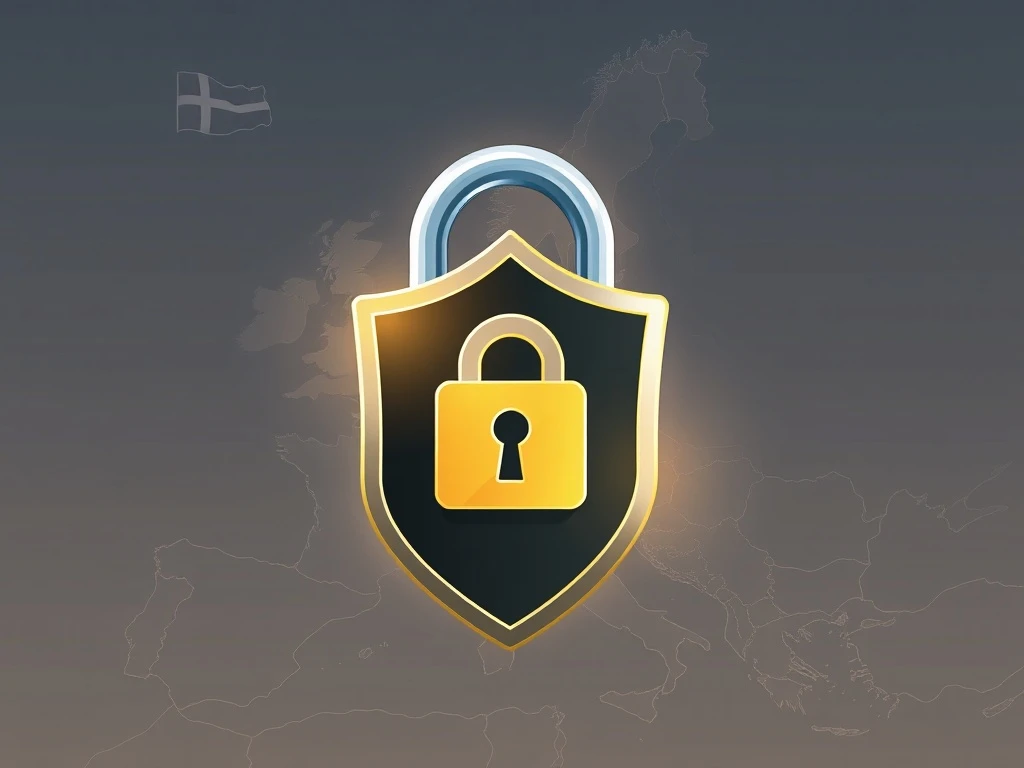EU Chat Control: Denmark’s Crucial Retreat Safeguards Digital Privacy

The digital landscape continually shifts, often pitting security concerns against fundamental rights. For those in the cryptocurrency space, digital privacy and secure communication are paramount. A recent development from Denmark offers a significant moment of relief. It signals a potential turning point in the ongoing global debate over mass surveillance and the sanctity of encrypted communications. This decision by Denmark could reshape the future of EU Chat Control proposals.
Denmark’s Pivotal Decision on EU Chat Control
Privacy advocates and technology companies alike are celebrating Denmark’s recent withdrawal from the contentious EU Chat Control proposal. This move effectively ends the country’s support for mandatory scanning of messages on popular platforms. Services like Telegram, Signal, and WhatsApp were at the heart of this debate. The proposal aimed to force these platforms to allow authorities to screen messages. This screening would occur before messages were encrypted and sent. Such a measure raised widespread concerns among citizens and organizations globally.
The original legislation, first introduced in May 2022, sought to combat the spread of illicit and illegal content. It aimed to make messaging services safer. However, critics quickly argued that it would severely undermine encrypted messaging. They also stated it would infringe upon people’s fundamental right to privacy. A revived version of the proposal emerged this year. Yet, it faced renewed and intensified opposition.
Danish Minister of Justice Peter Hummelgaard confirmed the withdrawal. He stated that the proposal “will not be part of the EU presidency’s new compromise proposal.” Furthermore, he emphasized that screening encrypted messages “will continue to be voluntary” for tech giants. This report came from the Danish daily newspaper Politiken on October 30. Consequently, this decision represents a major victory for digital freedoms within the European Union.
The Battle for Digital Privacy and Encrypted Messaging
At its core, the EU Chat Control debate highlights a crucial tension. On one side, governments aim to enhance public safety by detecting harmful content. On the other, individuals and privacy groups fiercely defend the right to private communication. The proposed legislation would have required messaging providers to implement client-side scanning. This technology scans messages on a user’s device before encryption takes place. Thus, it bypasses the security provided by end-to-end encryption.
End-to-end encryption ensures that only the sender and intended recipient can read messages. Not even the service provider can access the content. This technology forms the backbone of secure digital communication. It protects sensitive personal data, business communications, and journalistic sources. Many experts argue that introducing client-side scanning creates a fundamental backdoor. This backdoor could then be exploited by malicious actors or overreaching governments. It would fundamentally compromise the integrity of secure platforms.
Furthermore, critics argued that such a system is prone to false positives. It could lead to the erroneous flagging of innocent communications. This creates a significant risk of unwarranted surveillance. Key concerns included:
- Compromised Security: Weakening end-to-end encryption for all users.
- False Positives: The potential for innocent messages to be flagged as illicit.
- Mass Surveillance: Implementing a system capable of widespread content monitoring.
- Erosion of Trust: Damaging user confidence in secure communication platforms.
The very essence of digital privacy relies on the ability to communicate freely and securely. This latest development from Denmark helps to uphold that principle.
Industry and Advocacy Applaud the Data Surveillance Retreat
The news of Denmark’s withdrawal quickly garnered praise from various influential entities. X’s Global Government Affairs team expressed strong approval. They declared Denmark’s withdrawal a “major defeat for mass surveillance advocates.” The platform also affirmed its commitment to monitoring negotiations. X pledged to “continue to monitor the progress of these negotiations and oppose any efforts to implement government mass surveillance of users.” This statement underscores the widespread concern across the tech industry.
Patrick Hansen, Director of EU Strategy and Policy at stablecoin issuer Circle, also welcomed the news. He hailed it as a “Major win for digital freedoms in the EU.” This perspective resonates deeply within the cryptocurrency community. Here, the principles of decentralization and privacy are highly valued. The Electronic Frontier Foundation (EFF), a prominent civil liberties nonprofit, echoed these sentiments. They speculated that significant public pressure “pushed the EU Council to withdraw its dangerous plan to scan encrypted messages.”
These reactions highlight the broad consensus among tech companies, privacy advocates, and digital rights organizations. They collectively view mandatory message scanning as an unacceptable form of data surveillance. It poses a direct threat to the trust users place in their communication platforms. Moreover, it challenges the very foundation of a free and open internet. This retreat by Denmark provides a significant precedent.
Understanding the Implications of European Regulation
The current voluntary framework for addressing illicit content on messaging services expires in April 2026. This deadline looms large for EU policymakers. Minister Hummelgaard acknowledged that failure to resolve the years-long political stalemate over EU Chat Control would leave the EU without legal tools. These tools are necessary to combat bad actors using messaging services. The backtrack on mandatory chat control, therefore, aims to ensure a new framework can be implemented. This new framework must be in place before the deadline.
The European Union has often led the way in establishing comprehensive European Regulation for digital services. Examples include the General Data Protection Regulation (GDPR). This regulation set a global benchmark for data protection. However, the Chat Control proposal represented a departure from this privacy-first approach. It raised concerns about potential overreach. The ongoing debate reflects the difficulty in balancing security imperatives with fundamental human rights in the digital age.
Future EU presidencies will inherit this complex issue. Ireland will assume the EU Council’s presidency in July 2026. They will take the reins from Denmark after a year in the role. The challenge for Ireland and subsequent presidencies will be to find solutions. These solutions must effectively address online harms without resorting to mass surveillance. The decision by Denmark sets a new tone for these future discussions.
Lawmakers Must Prioritize Fundamental Digital Rights
Thorin Klosowski, a security and privacy activist with the EFF, has consistently argued against such measures. In a recent blog post, he urged lawmakers to cease attempts to bypass encryption. He stated these efforts often occur “under the guise of public safety.” Klosowski firmly believes the focus should instead be on “developing real solutions that don’t violate the human rights of people around the world.” This perspective is crucial for fostering a secure digital environment.
He emphasized that a fundamental misunderstanding of encryption technology persists among some lawmakers. Klosowski asserted, “As long as lawmakers continue to misunderstand the way encryption technology works, there is no way forward with message-scanning proposals, not in the EU or anywhere else.” This highlights the technical illiteracy often hindering effective policy-making in the digital realm. Implementing client-side scanning fundamentally weakens the security of all users. It does not selectively target criminals.
Ultimately, Klosowski concluded that this type of data surveillance is “not just an overreach; it’s an attack on fundamental human rights.” He called upon coming EU presidencies to abandon these attempts. Instead, they should work on solutions that genuinely protect people’s privacy and security. This aligns with the broader movement advocating for robust digital rights globally. The push for stronger European Regulation that respects privacy remains a critical objective.
Denmark’s decision to withdraw its support for mandatory EU Chat Control marks a significant victory. It underscores the power of public and industry pressure in shaping digital policy. This move champions digital privacy and reinforces the importance of encrypted messaging. It provides a crucial precedent for future discussions on data surveillance and European Regulation. While the challenge of combating online illicit content remains, this outcome reaffirms a commitment to fundamental human rights in the digital sphere. The global community will watch closely as the EU continues to navigate this delicate balance.









